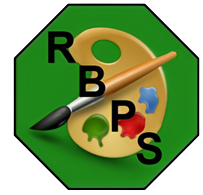- Home
- Key Information
- Curriculum
- Subjects
- English
- Reading
- How do we prioritise reading at Richard Bonington Primary School?
- How do we prioritise reading in Key Stage 1?
How do we prioritise reading in Key Stage 1?
In Key Stage 1 reading is taught through several key approaches:
Shared reading
During shared reading, children listen to stories beyond their reading ability and the teacher asks for children’s responses to key events and characters.
Modelled reading
In modelled reading, the teacher focuses on key decoding or comprehension skills, making explicit the reading strategies and thought process being undertaken in responding to the text.
Group reading
In group reading sessions, children focus on the specific skills of decoding, prosody and comprehension using a book containing the grapheme/phoneme correspondences that they have been taught. These sessions build fluency, expression and understanding.
Independent reading
Children should also read independently to themselves for short periods of time and to an adult for decoding support. They also listen to stories just for fun.
Phonics and cross-curricular reading
Reading games, instructions and reading within topic lessons supports children’s application of their reading skills alongside a structured, daily phonics session focused on the teaching of decoding using phonic knowledge and the recognition of tricky words (high-frequency words that are not decodable).
